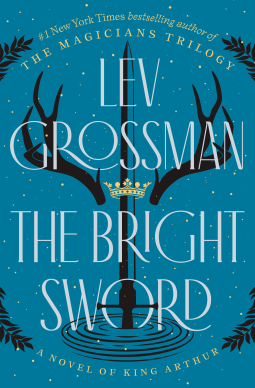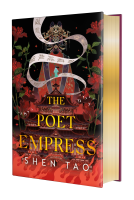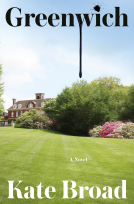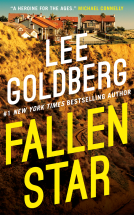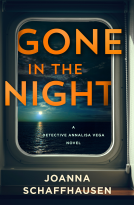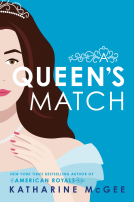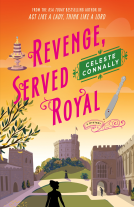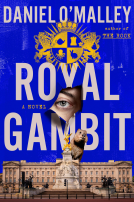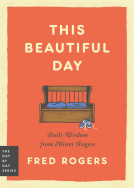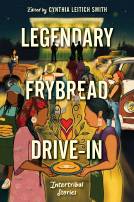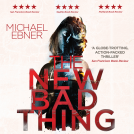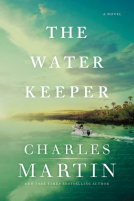The Bright Sword
A Novel of King Arthur
by Lev Grossman
You must sign in to see if this title is available for request. Sign In or Register Now
Send NetGalley books directly to your Kindle or Kindle app
1
To read on a Kindle or Kindle app, please add kindle@netgalley.com as an approved email address to receive files in your Amazon account. Click here for step-by-step instructions.
2
Also find your Kindle email address within your Amazon account, and enter it here.
Pub Date Jul 16 2024 | Archive Date Not set
PENGUIN GROUP Viking | Viking
Talking about this book? Use #TheBrightSword #NetGalley. More hashtag tips!
Description
Los Angeles Times Book Prize Finalist • Locus Award Finalist
NAMED A BEST BOOK OF THE YEAR BY THE NEW YORK TIMES, NPR, THE WALL STREET JOURNAL, VANITY FAIR, TIME, OPRAH DAILY, TOWN & COUNTRY, ELLE, VOX, PASTE, LIT HUB, POLYGON, KIRKUS REVIEWS
“Lev Grossman’s The Bright Sword stands out as the best fantasy of the year.” —The Wall Street Journal
“Grossman, who is best known for his The Magicians series, is at the top of his game with The Bright Sword.” —The New York Times Book Review
“A thrilling new take on Arthurian legend. . . . Marvelous.” —The Washington Post
“If you love King Arthur as much as I do, you’ll love Lev Grossman’s The Bright Sword, a fresh and engrossing take on the Matter of Britain featuring a colorful cast of Round Table knights who don’t often get as much story time as they deserve. The creator of The Magicians has woven another spell.” —George R. R. Martin, #1 New York Times bestselling author of A Game of Thrones
A gifted young knight named Collum arrives at Camelot to compete for a place at the Round Table, only to find that he’s too late. King Arthur died two weeks ago at the Battle of Camlann, and only a handful of the knights of the Round Table are left.
The survivors aren’t the heroes of legend like Lancelot or Gawain. They’re the oddballs of the Round Table, like Sir Palomides, the Saracen Knight, and Sir Dagonet, Arthur’s fool, who was knighted as a joke. They’re joined by Nimue, who was Merlin’s apprentice until she turned on him and buried him under a hill.
But it's up to them to rebuild Camelot in a world that has lost its balance, even as God abandons Britain and the fairies and old gods return, led by Morgan le Fay. They must reclaim Excalibur and make this ruined world whole again—but first they'll have to solve the mystery of why the lonely, brilliant King Arthur fell.
The first major Arthurian epic of the new millennium, The Bright Sword is steeped in tradition, complete with duels and quests, battles and tournaments, magic swords and Fisher Kings. It's also a story about imperfect men and women, full of strength and pain, trying to reforge a broken land in spite of being broken themselves.
Available Editions
| EDITION | Other Format |
| ISBN | 9780735224049 |
| PRICE | $35.00 (USD) |
| PAGES | 688 |
Available on NetGalley
Featured Reviews
 Aaron M, Librarian
Aaron M, Librarian
Thanks to NetGalley and the publisher for an ARC version of this title in exchange for an honest review.
I’ve been a huge fan of Lev Grossman’s writing ever since reading the Magicians Trilogy years ago. The Magicians is one of the best fantasy work of the twenty first century so far and has one of the most impressive and immersive magic systems of any fantasy I’ve ever read; I am fully prepared to die and be buried on this hill. So naturally when I read Grossman was trying his hand at Arthurian legend I knew I had to read it.
The author did not disappoint and managed to write a book that was both grounded in the mythology yet fresh and compelling, creating an expansive work that hits all the right notes and says something important about stories in general and the Arthurian legends specifically.
The set up for this book is as simple as it is interesting, Collum a naïve, aspiring knight from nothing and nowhere, arrives to Camelot only to find Arthur is dead, the age of legends is passed, and only the C tier knights remain, listless and dispirited. Together they go on a quest to find the next king of Britain and ensure Arthur’s legacy doesn’t fall into obscurity.
Interspersed throughout the story are brief chapters detailing the different characters’ backstories “The Tale of Bedivere” and “The Tale of Nimue” etc. These short chapters were some of my favorites and were doled out with judicious spacing, making me want to know more about each player in this epic tale, always looking forward to the next installment.
I loved Grossman’s take on the Arthurian mythos and could tell he’d done his homework on the topic. He’s right, Lancelot’s perfection is unsettling and makes him hard to relate to, Guinevere’s art for statecraft was probably underutilized, and Arthur’s true genius lay in strategy and knowing people, not in his swordsmanship. I also loved the portrayal of the struggle between the old Pagan Britain and the relatively new forces of empire and Christianity. This tension is rife in the original stories (I mean Merlin, enough said) but it was delightful to read a book that placed that conflict at center stage.
Overall this was a very enjoyable and fulfilling read for me. I’d definitely recommend it to anyone who likes Arthuriana and / or liked The Magicians series.
 Librarian 638821
Librarian 638821
Collum, a mistreated foster, runs to Camelot to be with his hero King Arthur. Sadly he arrives too late- Arthur is dead and most of his knights are dead. It is left to the remaining, less prestigious knights, Collum and Nimue (Merlin’s apprentice) to pick a new king and restore order to the land. Will the Christian knights reign or will Britain return to her pagan past?
A great “dark” King Arthur tale filled with quests, fairies, magic and True Love.
Lev Grossman has been talking about writing an Arthur book ever since he was in the midst of the Magicians trilogy -- and now it is here, absolutely worth the wait. Every generation must grapple anew with the Arthur story—why it is interesting, what pieces of the story still matter, what it can tell us about ourselves, what lessons might be learned?—and it is a thrill to see Grossman making a case for why thinking about Arthurian myth still very much matters in the 21st Century. This is a post-Arthur story in its way: Mordred and his father have both fallen, Lancelot and Guinevere fled into legend, and the Knights of the Round Table are basically all gone. Along comes a young man with idealism and hope to make a name for himself at the Table... and he finds himself swept up in an epic adventure, perhaps the very last adventure of all time, across a fractured England and the fairy realms besides. We see glimpses of the Round Table, of these knights from the periphery of the classic adventures who will now take their rightful place in our imaginations -- but all along, Grossman is asking why we tell stories, why we look to kings, just what it means to have an identity and to fight for it. It's an epic novel, due to take its place alongside THE ONCE AND FUTURE KING and THE BURIED GIANT as well as not-quite-Arthurian stories like Jez Butterworth's JERUSALEM. It is spectacular, a once-in-a-lifetime kind of novel, worth every minute.
Readers who liked this book also liked:
L.M Montgomery
Children's Fiction, Comics, Graphic Novels, Manga, Teens & YA
Cynthia Leitich Smith; Kate Hart; Eric Gansworth; Marcella Bell; Darcie Little Badger; Karina Iceberg; Kaua Mahoe Adams; Andrea L. Rogers; Cheryl Isaacs; Christine Hartman Derr; Brian Young; K. A. Cobell; Jen Ferguson; A. J. Eversole; Byron Graves; Angeline Boulley; David A. Robertson
Children's Fiction, Multicultural Interest, Teens & YA
William W. Johnstone; J.A. Johnstone
General Fiction (Adult), Historical Fiction
